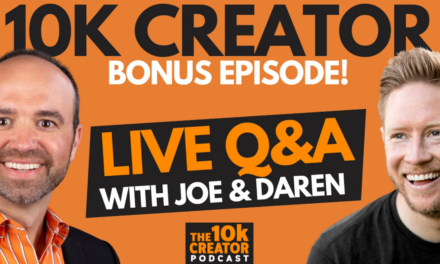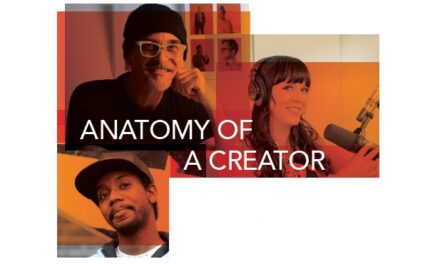Before an audience can trust you and your content brand, they need to know others already trust you.
The research proves that. Among some of the impressive stats:
- 72% of customers say positive testimonials and reviews increase their trust in a business.
- 70% of people trust reviews and recommendations from strangers
- 88% of consumers trust online testimonials and reviews as much as recommendations from friends and family.
“In the digital world, where personal connection can be limited, testimonials act as a bridge of trust. When potential audiences or customers see real people vouching for the value of your content, it instantly enhances credibility,” says Dawna Jarvis, a public relations and business strategy expert.
It goes back to the marketing lesson, says Jennifer Galbraith, president of Alestra Marketing. Don’t talk about what your brand can do. Instead, talk about the audience and how you can help them.
“Testimonials take that one step further because they show that you are the guide. They show them that you have helped others who had the same problems to survive and thrive,” she says.
Scott Lieberman, founder of www.TouchdownMoney.com, says he finds testimonials are one of the best ways to sell courses, subscriptions, and more.
“The key here is the testimonial is focused on how the person solved their problem using a new mechanism – which happens to be what you’re selling – be it a course, product, or service,” Scott says.
Testimonials also attract brand partners. “Sponsors like to be aligned with high-quality businesses. They want the halo effect of partnering with a respected content creator. Testimonials add to your credibility,” Scott explains.
Testimonials add to your content business' credibility. Sponsors want the halo effect of partnering with a respected creator, says Scott Lieberman of @TouchdownMoney7. #CreatorEconomy Share on XHow to use testimonials
Write testimonials as mini-stories. Let people see a bit of themselves in the experience. “Aim for testimonials that tug at the heartstrings because we’re all drawn to emotions and real-life stories,” Dawna says.
Highlight in your content. Use testimonials on your website, social media, print materials, book cover, and advertisements. Turn your best testimonials into images or videos to run as ads on Facebook and Instagram, says Jordan McAuley, founder of Contact Any Celebrity.
Scott publishes video testimonials on YouTube and text testimonials on Reddit to reach more customers.
Podcast segments and newsletter highlights are other options shared by Dawna.
How to get testimonials
Don’t wait for the testimonials to come organically.
Jordan’s advice? “Be shameless when asking your audience for testimonials. Don’t assume they will do it on their own. Be vulnerable. Let them know how it helps you and your business.”
Dawna secures testimonials after she wraps up a project. “Timing is everything,” she says. “I usually send over a simple online form or a few easy questions. It’s not just about making it easy for them, but it’s also a great way to get those genuine, in-depth responses.”
Using testimonials as a feedback loop as well as a marketing tool can help the creator refine and improve their offerings to align with their audience’s evolving needs, Dawna says.
“You’d be surprised how much valuable feedback comes from just asking my audience how my content’s impacting them,” she says.
Use testimonials as a feedback loop. They can help creators refine and improve their offerings, says @Dawna_Jarvis. #ContentEntrepreneur Share on XJordan says you shouldn’t make the testimonial request all about you. “When I ask customers for a testimonial, I tell them, ‘Feel free to plug your project.’”
“In my experience, the reality is most people will write a testimonial because they want to be helpful but don’t usually plug anything. So you end up getting a great testimonial anyway,” he says.
People will write a testimonial because they want to be helpful to the content entrepreneur, says @JordanMcauley. #ContentBusiness Share on XSometimes, a testimonial manifests itself without your request. Jordan says when a customer sends a compliment, they respond with “Thanks for the kind words. We would love it if you could post a quick review here” and include a link to their Google reviews page.
Jordan also recommends setting up Google alerts for your brand and doing a Google search once a month to see if audience members are posting positive reviews but haven’t shared them with you.
Jennifer of Alestra Marketing offers this handy list of questions to ask when seeking a testimonial:
- What was your absolute biggest challenge prior to purchasing/joining/attending?
- How did that challenge make you feel?
- What changed after purchasing/joining/attending?
- What specific results can you share?
Just like successful content entrepreneurs publish consistently, you should regularly seek testimonials, Dawna notes.
“In the world of content creation, social proof is key,” she says. “Testimonials are a form of social proof that can boost your reputation and authority in your niche.”
About the author
Ann regularly combines words and strategy for B2B, B2C, and nonprofits, continuing to live up to her high school nickname, Editor Ann. An IABC Communicator of the Year and founder of G Force Communication, Ann coaches and trains professionals in all things content. Connect with her on LinkedIn and Twitter.










